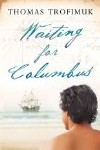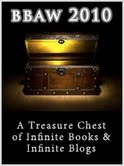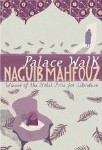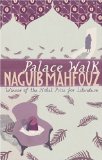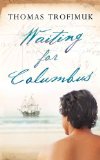
Richard and Judy 2010 Winter Reads
I had seen several people raving about this book and so when I saw Richard and Judy’s new book club selection it was the title that appealed to me most. Unfortunately I seem to be one of the few people who didn’t fall in love with Waiting for Columbus – it irritated me so much that I failed to finish it.
Waiting for Columbus is set in a mental asylum in Seville. It focuses on a man who was found floating on a plank of wood in the Straits of Gibraltar; claiming to be Christopher Columbus this man has an amazing knowledge of Columbus’s life, but also an awareness of modern day technology. Through an increasingly romantic relationship with his nurse, Consuela, the truth about this confused man is slowly revealed.
I’m afraid that this book irritated me from the very beginning. This passage from page 9 illustrates several of my problems:
“Get me a phone,” he snaps. “I want to make a call.”
“Pardon?”
“A phone damnit. Look, I am Columbus. Christopher Columbus. I know the queen, the queen and the king. They can vouch for me. I am to lead three ships across the Western Sea. We’ve got a deal, damnit! Just get them on the phone.”
I hated the way in which new technologies were combined with historical information. It just didn’t feel right to me. The book frequently described events in Columbus’s life, but constant references to the future meant that I never became immersed in the past. We learned snippets about life 500 years ago, but these were so brief and vague that they failed to hold my attention.
Columbus was a rude, unlikable character. There were many points in the book that I wanted to slap him, but as his relationship with Consuela developed I found it increasingly hard to read his words without throwing the book across the room.
“I have feelings for you, Mr. Columbus. Very strong feelings. Feelings so strong that if I let them out you would perhaps be frightened.”
“Nothing much scares me,” he says.
There was nothing romantic or subtle about this relationship and it drove me nuts. I just couldn’t bear to read any more and so I gave up at about the 100 page mark.
Thanks to the wonder of Twitter, @bookladysblog (who LOVED the book) explained the ending to me and while it made sense, I’m quite pleased that I gave up when I did as it isn’t the type of ending that excites me.
I seem to be in the minority in not enjoying this book, so please read all the other reviews before deciding whether or not this book is for you.
Everyone else seems to love this book:
…. a read that will keep you breathless and leave you gasping for more. The Book Ladys Blog
…..a unique book that was enjoyable to read. S. Krishna’s Books
I did not want to stop reading. Sophisticated Dorkiness
A unconventional, multi tiered tale of love, loss and redemption that will grab you and not let you go until the final pages…… A Bookworm’s World
Did you enjoy Waiting for Columbus?
